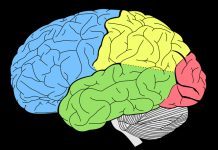What is gratitude?
The strong feeling of being thankful for any course of action is known as gratitude. This is a good positive feeling which helps people to be more appreciative and kind towards others.
The brain controls emotions and behavior. Both are interlinked. Gratitude and the brain, are inter-twined. Good positive thinking and gratitude nature changes the brain and thus one’s life.
Gratitude and the Brain
Does thankfulness make you happier? Let us see how they are interconnected. People who have a habit of counting their blessings and being thankful for the same are more likely to live happily and peacefully. Scientists have come to the conclusion that these people also have a longer life span.
How gratitude rewires your brain
Let us see what happens to your brain when you express gratitude and try to understand what science reveals about gratitude’s impact on the brain.
The Neurotransmitters
Neurotransmitters are the chemical messengers with which the body communicates. They carry chemical signals from the nerve cells to the targeted cells. The receiver may be any part of the body, another neuron, gland, cell, or a target muscle cell. Some of the major neurotransmitters are Dopamine, Glutamate, Acetylcholine, and Serotonin.
Happy Serotonin
Serotonin is referred to as the “happiness chemical” impacting the brain to make one feel happy. Continuous practice of gratitude and thankfulness helps in activating this neurotransmitter and lets the person be depression and anxiety free.
Grey matter
People who are more expressive in gratitude have shown in the studies of more grey matter in the brain. This helps the brain area with learning and processing information. Henceforth, helping the person to be a good decision-maker. It allows them to be more emotionally balanced and properly regulate their emotions.
Nervous system
The body’s nervous system gets affected by the emotions and feelings of an individual. When the person is calm and relaxed, the body is in a parasympathetic state, allowing the body’s nervous system to be in a resting state. Our brain’s nervous system is mostly stuck in sympathetic mode or a stressful state. Always ready to fight or flight. A consistent practice of gratitude helps the nervous system to be more relaxed in a parasympathetic state.
Hypothalamus
Gratitude also activates the hypothalamus, which is responsible for proper sleep and good metabolic function. This can have a direct reflection on the immune system.
How does gratitude improve mental strength?
The consistent practice of appreciating what we have helps the mental health of a person.
Optimistic approach
Those who practice gratitude are always very optimistic in their approach to life. They are very open-minded and ready for any consequences to take over positively and handle them in a positive way.
Great help in being social
People who are thankful and grateful, always respect and value relationships. They don’t take people’s presence for granted. They understand the value of others’ time. This helps the individual to be more social and interactive.
Positive Vibe
Individuals practice gratitude out of stress and depression, as they understand the situations better and in the present. They are happy and thus try to solve problems in a relaxed manner without getting stressed out. They are mostly resistant to anxiety.
Good physical health
People who are more grateful and thankful prefer taking good care of their physiques. They eat nutritious food and do a lot of activities and exercises. This helps in a strong immune system.
Peaceful sleep
A calm mind ensures quality sleep. Expressing gratitude often leads to peace of mind and thus ensures better sleep at night without any disturbance.
How can we practice gratitude?
Maintain a gratitude journal: Write down a list of things you’re grateful for every day, or at least once a week.
Mindfulness
Take a moment to reflect on what you’re grateful for during your daily routine.
Express gratitude
Tell someone you appreciate them or write a thank-you note.
Meditate
Focus on the things you’re grateful for, and let those thoughts fill your mind.
Practice gratitude visualization
(Law of attraction) Imagine yourself in a situation where you have everything you’re grateful for, and focus on the feelings of gratitude that arise.
Bottom line
These are the amazing effects of gratitude in preparing one individual to be more responsible and kind towards his/her life. Both gratitude and the brain are interconnected resulting in hormonal and emotional changes in the being. Gratitude has been found to have positive effects on the brain.


















